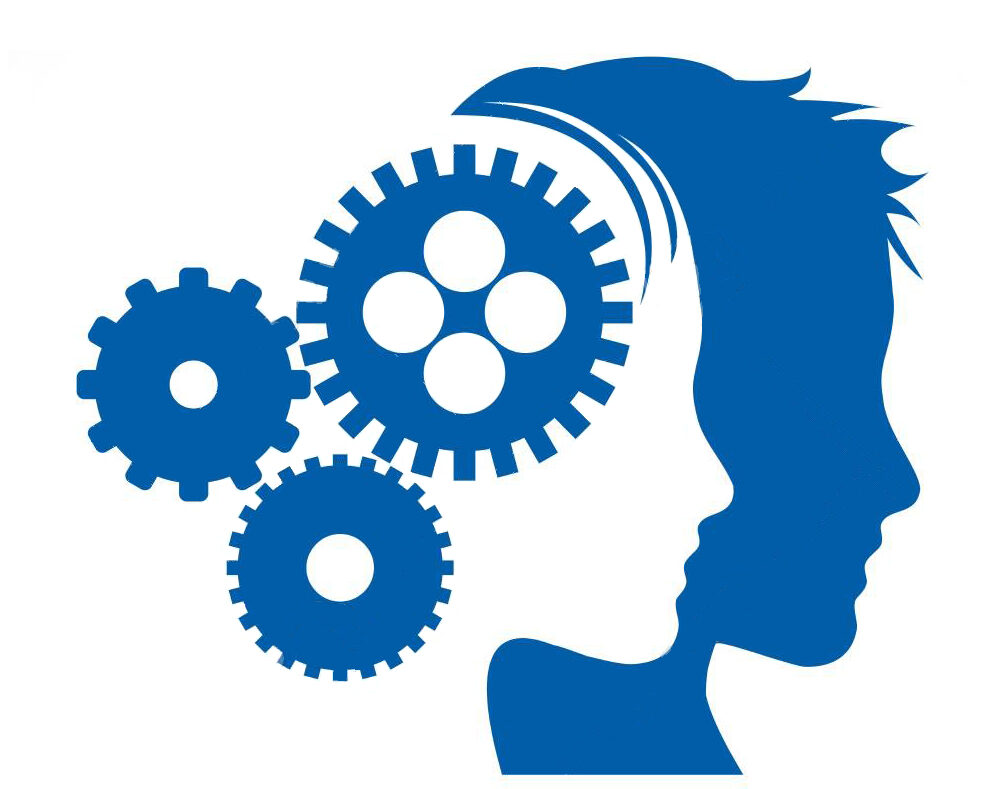Imagine a world where gratitude and thankfulness were at the core of every interaction. Picture a society where appreciation and acknowledgement were the foundation of relationships. In this enchanting realm, the power of a grateful heart reigns supreme, allowing individuals to connect more deeply, find fulfillment, and experience a profound sense of joy. In this article, we explore the distinction between being grateful and being thankful, uncovering the profound impact each can have on our lives. So, settle in and prepare to embark on a journey that will illuminate the path to a more grateful existence.
The Importance of Gratitude
Gratitude is a powerful and transformative attitude that has the ability to enhance nearly every aspect of your life. By focusing on the positive aspects of your life and expressing appreciation for the people, experiences, and opportunities that come your way, you can cultivate a mindset of gratitude. This mindset has numerous psychological and physical benefits, ultimately leading to greater happiness and well-being.
Gratitude as a Positive Attitude
At its core, gratitude is a positive attitude that allows you to recognize and acknowledge the goodness in your life. It is a way of shifting your perspective to focus on what you have, rather than what you lack. By adopting a grateful mindset, you invite positivity and abundance into your life, as you become more aware of the blessings that surround you.
The Psychological Benefits of Gratitude
Countless studies have shown the psychological benefits of practicing gratitude. Research suggests that individuals who regularly express gratitude experience higher levels of happiness, optimism, and life satisfaction. Gratitude can also reduce stress, anxiety, and depression, as it promotes a positive outlook and helps individuals to cope with challenging situations. Additionally, cultivating gratitude has been linked to improved self-esteem and increased resilience.
Gratitude and Physical Health
The impact of gratitude extends beyond the realm of psychology and into physical health. Studies have found that individuals who practice gratitude have lower blood pressure, reduced inflammation, and stronger immune systems. Grateful individuals also tend to engage in healthier lifestyle behaviors, such as regular physical activity and better sleep quality. These findings highlight the interconnectedness of mind and body, and emphasize the importance of practicing gratitude for overall well-being.
Practicing Gratitude in Daily Life
In order to fully experience the benefits of gratitude, it is essential to incorporate it into your daily life. Fortunately, there are several simple yet effective practices that can help you cultivate gratitude on a regular basis.
Keeping a Gratitude Journal
One popular method for practicing gratitude is keeping a gratitude journal. Each day, take a few moments to write down three things you are grateful for. This habit helps you to shift your focus towards the positive aspects of your life, encouraging a grateful mindset. Over time, reviewing your journal can serve as a reminder of all the blessings you have received, and can bring about a sense of joy and contentment.
Expressing Gratitude to Others
Another powerful way to practice gratitude is by expressing it directly to others. Take the time to regularly acknowledge and appreciate the people in your life who have made a positive impact. Write thank-you notes, express your gratitude verbally, or perform acts of kindness as a way to show appreciation. Not only will this strengthen your relationships, but it will also deepen your own sense of gratitude.
Finding Gratitude in Challenging Moments
While it may be easier to feel grateful during times of success and happiness, it is equally important to cultivate gratitude during challenging moments. By reframing difficult situations and seeking the lessons or silver linings within them, you can find gratitude even in the midst of adversity. This practice builds resilience and helps you to navigate tough times with a positive outlook.
Gratitude as a Daily Habit
To truly benefit from gratitude, it is important to make it a daily habit. Incorporate gratitude into your daily routine by setting aside dedicated time for reflection and appreciation. This could be in the form of meditation, prayer, or simply taking a few moments each morning or evening to mentally count your blessings. Consistency is key when it comes to cultivating a grateful mindset.

The Science Behind Gratitude
The practice of gratitude is not just a subjective experience; it is also deeply rooted in science. Neuroscience has shed light on the physiological and psychological processes that occur when we experience gratitude, providing valuable insights into its effects on well-being.
Neuroscience and Gratitude
Neuroscientists have discovered that expressing gratitude activates the brain’s reward system, leading to the release of feel-good neurotransmitters such as dopamine and serotonin. These brain chemicals are associated with pleasure, happiness, and overall well-being. By actively practicing gratitude, you can train your brain to become more attuned to positive experiences and increase your overall level of happiness.
The Role of Dopamine and Serotonin
Dopamine and serotonin are two neurotransmitters that play a crucial role in mood regulation and emotional well-being. Dopamine is associated with feelings of reward and motivation, while serotonin contributes to feelings of happiness and contentment. By engaging in practices that promote gratitude, such as keeping a gratitude journal or expressing appreciation to others, you can boost the production and release of these neurotransmitters, leading to a more positive and uplifted emotional state.
Gratitude and the Brain
Studies using brain imaging techniques have shown that gratitude can actually change the structure and function of the brain. The prefrontal cortex, which is responsible for executive functions such as decision-making and emotional regulation, is particularly affected by gratitude. Regularly practicing gratitude strengthens the prefrontal cortex and enhances its ability to regulate emotions, leading to greater emotional well-being and resilience.
The Link between Gratitude and Well-being
The link between gratitude and well-being is undeniable. Research has consistently shown that individuals who cultivate gratitude experience higher levels of life satisfaction, positive emotions, and overall psychological well-being. Additionally, gratitude has been found to decrease symptoms of depression and anxiety, increase resilience, and improve sleep quality. These findings provide compelling evidence for the transformative power of gratitude in promoting well-being.
Cultivating a Grateful Mindset
Cultivating a grateful mindset involves adopting specific attitudes and behaviors that allow you to fully embrace the power of gratitude in your life. By consciously shifting your perspective, avoiding comparison, and being present in the moment, you can nurture a mindset of gratitude that permeates every aspect of your being.
Shifting Perspectives
One of the key aspects of cultivating a grateful mindset is shifting your perspective from one of scarcity to one of abundance. Instead of focusing on what you lack, train your mind to focus on what you have and what you are grateful for. This shift in perspective allows you to appreciate the richness and abundance that already exist in your life, fostering a sense of gratitude and contentment.
Avoiding Comparison
Comparison is the thief of joy, and it can hinder the development of gratitude. When you constantly compare yourself to others, you diminish your own sense of self-worth and gratitude for what you have. Instead of comparing yourself to others, focus on your own journey and accomplishments. Celebrate your own successes and acknowledge how far you have come. This mindset shift allows you to cultivate gratitude for your own unique path.
Focusing on the Present Moment
The present moment is where gratitude truly thrives. By practicing mindfulness and being fully present in each moment, you cultivate an awareness of the blessings that surround you. Pause throughout your day to take in the beauty of your surroundings, savor a delicious meal, or engage in meaningful conversations. When you actively engage with the present moment, you open yourself up to experiencing gratitude on a deeper level.
Letting Gratitude Transform You
Gratitude has the power to transform not only your mindset, but also your entire being. As you continue to cultivate gratitude, you may notice changes in your thoughts, emotions, and behaviors. You may find yourself feeling more joyful, compassionate, and content. Embrace these transformations and allow gratitude to shape you into the best version of yourself. By actively practicing gratitude, you can create a positive ripple effect that extends to all areas of your life.

Gratitude in Relationships
Gratitude has the ability to enhance the quality of your relationships and deepen your connection with loved ones. By expressing appreciation, showing gratitude, and cultivating a grateful mindset, you can create a nurturing and fulfilling environment for yourself and those around you.
Enhancing Connection and Communication
Gratitude serves as a powerful tool for enhancing connection and communication in relationships. When you express gratitude to others, you validate their efforts, show them that they are valued, and strengthen the bond between you. By actively practicing gratitude in your interactions with loved ones, you create an environment of trust, love, and appreciation.
Showing Appreciation to Loved Ones
It is crucial to express gratitude to your loved ones on a regular basis. Take the time to acknowledge the positive qualities and actions of those around you. Show appreciation for the love, support, and kindness you receive. Whether it is through a heartfelt thank-you, a small gesture of kindness, or simply spending quality time together, expressing gratitude to loved ones strengthens your relationships and fosters a sense of mutual appreciation.
Gratitude and Romantic Relationships
Gratitude plays a particularly significant role in romantic relationships. By expressing gratitude for your partner’s efforts, love, and support, you create a positive and nurturing dynamic. Gratitude helps to cultivate a sense of admiration and respect for your partner’s contributions, while also enhancing the overall satisfaction and happiness within the relationship. Regularly acknowledging and appreciating your partner can foster a deep sense of intimacy and connection.
Gratitude in Parenting
Gratitude is equally important in the context of parenting. Expressing gratitude to your children not only strengthens your bond with them, but also instills a sense of self-worth and appreciation within them. By acknowledging their efforts, celebrating their accomplishments, and expressing gratitude for their presence in your life, you create a loving and nurturing environment for their growth and development.
The Practice of Mindful Gratitude
Mindfulness and gratitude are powerful practices that, when combined, can deepen your experience of gratitude and enrich your overall well-being. By bringing mindfulness into your journey of gratitude, you can cultivate a heightened sense of awareness and actively engage with the blessings that surround you.
Combining Mindfulness and Gratitude
Mindfulness involves intentionally paying attention to the present moment, without judgment. When combined with gratitude, mindfulness allows you to fully immerse yourself in the experience of gratitude, thereby maximizing its benefits. By bringing a sense of curiosity and non-judgmental awareness to your gratitude practice, you deepen your appreciation for even the smallest moments of joy and create a sense of presence in your daily life.
Mindful Gratitude Exercises
There are several mindfulness exercises that can be combined with gratitude to enhance your practice. One example is the “savoring” exercise, where you intentionally focus on and appreciate a specific positive experience or sensation. This could include savoring the taste of a delicious meal, the feel of warm sunlight on your skin, or the sound of laughter. Another exercise is the “three blessings” exercise, where you reflect on three things you are grateful for each day, savoring the emotions and sensations associated with each one.
Bringing Gratitude into Meditation
Meditation is a powerful practice for cultivating both mindfulness and gratitude. Dedicate a portion of your meditation practice to focus on cultivating gratitude. This could be done through a loving-kindness meditation, where you extend feelings of gratitude and well-wishes to yourself and others. You can also incorporate gratitude affirmations or mantras into your meditation, repeating phrases such as “I am grateful for all the abundance in my life” or “I am thankful for the love and support of those around me.”

Gratefulness and Self-Care
Self-care is essential for overall well-being, and incorporating gratitude into your self-care routine can amplify its benefits. By prioritizing self-gratitude, engaging in self-reflection, boosting self-esteem, and using gratitude as a tool for self-care, you can nurture a deep sense of self-love and appreciation.
Prioritizing Self-Gratitude
Practicing gratitude towards yourself is just as important as expressing it towards others. Take the time to acknowledge your own efforts and achievements, and show appreciation for your unique qualities and strengths. Engage in self-reflection and express gratitude for the lessons and growth opportunities that come your way. By prioritizing self-gratitude, you cultivate a strong sense of self-worth and nourish your relationship with yourself.
Gratitude in Self-Reflection
Self-reflection is a valuable practice that allows you to gain insight into your thoughts, emotions, and actions. By incorporating gratitude into self-reflection, you can foster a sense of appreciation for your own growth and progress. Reflect on the moments of gratitude that have arisen throughout your day, and explore how they have shaped your overall well-being. Regular self-reflection helps you to cultivate mindfulness and gratitude on a deeper level.
Using Gratitude to Boost Self-Esteem
Gratitude has the power to boost self-esteem and enhance self-confidence. By acknowledging your accomplishments, strengths, and positive qualities, you reinforce your sense of self-worth. Take the time to write down three things you appreciate about yourself each day, and reflect on the progress you have made. By actively practicing self-gratitude, you shift your focus towards your own potential and cultivate a positive self-image.
Gratitude as a Tool for Self-Care
Self-care is an essential aspect of maintaining overall well-being. By incorporating gratitude into your self-care routine, you infuse it with a sense of appreciation and gratitude. Engage in self-care activities mindfully, appreciating the opportunity to nourish and care for yourself. Whether it is through a relaxing bath, a walk in nature, or engaging in a hobby you love, bring a sense of gratitude into these moments. This enhances the overall experience and deepens your connection with yourself.
Gratitude and Success
Gratitude can play a significant role in your journey towards success. By utilizing gratitude as a motivator, fostering positive professional relationships, practicing gratitude in the workplace, and acknowledging personal achievements, you can enhance your overall level of success and fulfillment.
Gratitude as a Motivator
Gratitude serves as a powerful motivator that can propel you towards success. By cultivating a sense of gratitude for the opportunities, skills, and resources that you have, you tap into a deep reservoir of motivation and inspiration. Gratitude fuels a sense of purpose and drives you to make the most of the opportunities that come your way.
Gratitude and Professional Relationships
Building positive professional relationships is essential for success in the workplace. Expressing gratitude towards your colleagues, superiors, and employees fosters a supportive and collaborative environment. When you acknowledge and appreciate the contributions of others, you create a culture of teamwork, trust, and positivity. Gratitude enhances professional relationships and lays the foundation for success.
Practicing Gratitude in the Workplace
The workplace is the ideal setting to practice and express gratitude on a regular basis. Take the time to thank your colleagues for their support, acknowledge their efforts, and express appreciation for their contributions. Cultivate a workplace culture that values gratitude by creating opportunities for everyone to express their gratitude, such as team appreciation days or gratitude sharing sessions. By actively practicing gratitude in the workplace, you create a positive and productive work environment.
Gratitude and Personal Achievement
By acknowledging and celebrating your personal achievements, you foster a sense of gratitude for your own capabilities and hard work. Take the time to reflect on your accomplishments, big or small, and express gratitude towards yourself for the effort and dedication you have put in. By practicing self-gratitude and recognizing your achievements, you strengthen your sense of self-efficacy and boost your confidence, ultimately leading to further success.

The Impact of Gratitude on Mental Health
Gratitude has a profound impact on mental health and plays a crucial role in reducing stress, anxiety, and depression. By cultivating gratitude, building resilience, and enhancing emotional well-being, you can significantly improve your mental health and overall quality of life.
Reducing Stress and Anxiety
Stress and anxiety are prevalent in today’s fast-paced world. Fortunately, gratitude offers a powerful antidote to these negative emotions. By focusing on what you are grateful for, you shift your attention away from stressors and cultivate a sense of calm and contentment. Regularly practicing gratitude has been shown to reduce perceived stress levels and alleviate symptoms of anxiety.
Gratitude and Depression
Depression can make it challenging to find joy and meaning in life. However, incorporating gratitude into your daily routine can have a profound impact on your mental health. By actively seeking out moments of gratitude and expressing appreciation, you create positive experiences that counteract the negative thought patterns associated with depression. Gratitude has been found to reduce symptoms of depression and increase overall well-being.
Building Resilience through Gratitude
Resilience is the ability to bounce back from difficult situations and adapt to challenges. Gratitude plays a key role in building resilience by shifting your focus towards the positive aspects of challenging situations. By finding gratitude in adversity, you increase your ability to cope with stress, overcome setbacks, and maintain a positive outlook. Gratitude fosters emotional resilience and equips you with the tools to navigate life’s ups and downs with grace and strength.
Gratitude and Emotional Well-being
Emotional well-being is closely tied to gratitude, as the act of expressing gratitude promotes positive emotions and enhances overall emotional health. By regularly practicing gratitude, you cultivate a sense of joy, contentment, and happiness. Gratitude also helps to regulate and balance emotions, reducing the intensity of negative emotions such as anger, frustration, and sadness. By embracing gratitude as a daily habit, you increase your emotional well-being and experience greater overall satisfaction with life.
The Power of Thankfulness
Thankfulness and gratitude are often used interchangeably, but they hold subtle differences in meaning and practice. Understanding the nuances between the two can deepen your understanding and appreciation for the power of gratitude.
Thankfulness vs. Gratitude
Thankfulness and gratitude both involve expressing appreciation for something or someone. However, there is a slight distinction between the two. Thankfulness is typically associated with a specific event or action, while gratitude tends to be a broader, more encompassing mindset. Thankfulness is often an immediate response to a kind act, whereas gratitude is a deeper state of being that involves an ongoing awareness of and appreciation for the blessings in life.
Expressing Thankfulness
Expressing thankfulness involves acknowledging and appreciating specific acts of kindness, gestures, or events. It is a way to show your gratitude for something specific that has occurred. Whether it is saying “thank you” to someone who went out of their way to help you or writing a thank-you note for a thoughtful gift, expressing thankfulness is a meaningful practice that reinforces positive relationships and strengthens connections.
Thankfulness and Gratitude – Similarities and Differences
Thankfulness and gratitude share a common foundation of appreciation, but they differ in their scope and depth. While thankfulness is more focused on specific events or actions, gratitude encompasses a broader perspective that encompasses all aspects of life. Gratitude goes beyond immediate expressions of thanks and permeates your thoughts, emotions, and actions. By cultivating gratitude, you develop a deep sense of appreciation for both the big and small blessings that enrich your life.
In conclusion, gratitude is not just a fleeting feeling, but a powerful and transformative attitude that can bring about profound positive changes in your life. By embracing gratitude as a daily habit, practicing it in your relationships, combining it with mindfulness, prioritizing self-gratitude, incorporating it into your pursuit of success, and recognizing its impact on mental health, you can experience the incredible power of gratitude and unlock a life filled with joy, contentment, and fulfillment. Embrace the practice of gratitude and let it transform you into a more grateful, compassionate, and resilient individual.








